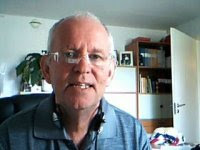 |
| Eurons popularitet dalar |
fredag 20 januari 2012
65 % vill inte inleda euro på Island
torsdag 19 januari 2012
63% av islänningarna emot Islands EU-ansökan
 |
| EU + Island = Nej tack! |
I en Capacent-Gallup undersökning okt - dec 2011där 1085 individer svarade på frågan Är du för eller emot Islands medlemskap i EU visar det sig när man räknar dem som tog ställning att 63 % är emot och 37 % är för.
I en liknande undersökning för sex månader sedan blev siffrorna 57,3 % emot och 42,7 % för.
När hänsyn tas till den stora andel osäkra som inte kunde bestämma sig blev siffrorna:
53, 5% emot ett isländskt medlemskap i EU
15 % varken med eller emot
31,5 % för medlemskap i EU
Trenden visar därför växande motstånd mot att Island söker sig till EU. Skulle det vara ett val i dag skulle Islands ansökan till EU upphävas.
onsdag 18 januari 2012
World Bank Projects Global Slowdown, with Developing Countries Impacted
Press Release No:2012/236/DEC
Beijing, January 18, 2012 – Developing countries should prepare for further downside risks, as Euro Area debt problems and weakening growth in several big emerging economies are dimming global growth prospects, says the World Bank in the newly-released Global Economic Prospects (GEP) 2012.
The Bank has lowered its growth forecast for 2012 to 5.4 percent for developing countries and 1.4 percent for high-income countries (-0.3 percent for the Euro Area), down from its June estimates of 6.2 and 2.7 percent (1.8 percent for the Euro Area), respectively. Global growth is now projected at 2.5 and 3.1[1] percent for 2012 and 2013, respectively.
Slower growth is already visible in weakening global trade and commodity prices. Global exports of goods and services expanded an estimated 6.6 percent in 2011 (down from 12.4 percent in 2010), and are projected to rise by only 4.7 percent in 2012. Meanwhile, global prices of energy, metals and minerals, and agricultural products are down 10, 25 and 19 percent respectively since peaks in early 2011. Declining commodity prices have contributed to an easing of headline inflation in most developing countries. Although international food prices eased in recent months, down 14 percent from their peak in February 2011, food security for the poorest, including in the Horn of Africa, remains a central concern.
“Developing countries need to evaluate their vulnerabilities and prepare for further shocks, while there is still time,” said Justin Yifu Lin, the World Bank’s Chief Economist and Senior Vice President for Development Economics.
Developing countries have less fiscal and monetary space for remedial measures than they did in 2008/09. As a result, their ability to respond may be constrained if international finance dries up and global conditions deteriorate sharply.
To prepare for that possibility, Hans Timmer, Director of Development Prospects at the World Bank, said: “Developing countries should pre-finance budget deficits, prioritize spending on social safety nets and infrastructure, and stress-test domestic banks.”
While prospects in most low-and middle-income countries remain favorable, the ripple effects of the crisis in high-income countries are being felt worldwide. Already, developing country sovereign spreads have increased 45 basis points on average and gross capital flows to developing countries plunged to $170 billion in the second half of 2011, compared with $309 billion received during the same period in 2010.
“An escalation of the crisis would spare no-one. Developed- and developing-country growth rates could fall by as much or more than in 2008/09” said Andrew Burns, Manager of Global Macroeconomics and lead author of the report. “The importance of contingency planning cannot be stressed enough.”
The full report and accompanying datasets are available at www.worldbank.org/globaloutlook |
Prenumerera på:
Kommentarer (Atom)



